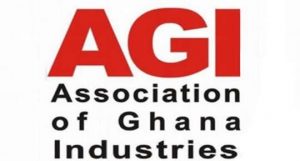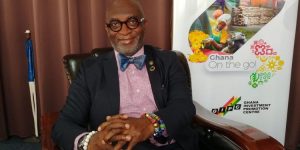Former finance minister, Seth Terkper, has called on government to, as a matter of urgency, take the US$1 billion Special Drawing Rights (SDR) allocation by the International Monetary Fund (IMF) to parliament for approval on how to spend it to ensure proper accountability.
His comments come on the back of the finance minister, Ken Ofori-Atta, reportedly saying the SDR will be used to support government’s budgetary needs, something the IMF allows to be done, even though the main purpose of the funds, according to the Bretton Woods institution, is to shore up revenue.
For Mr. Terkper, who spoke to the B&FT in an interview, the law – both the constitution and the Public Financial Management Act (PFMA) – mandate government to channel any such expenditure through parliament for appropriation, before it can be used as budgetary support.
“The minister of finance was quoted as saying that the money will be used for budgetary purposes including short- and medium-term needs of the government. But these are sovereign resources and all sovereign revenues must be paid into the consolidated fund under the constitution and the PFMA. Therefore, judging from the provision in our constitution alone, we are recommending that the money should go to parliament for appropriation.
Again, this is the second time the government will request the fund from departing from our tradition or convention of sending IMF resources to the central bank to shore up its reserves because it is in forex. And in actual fact, most IMF programme loans sent to the central bank are repaid by the central bank and not by the government. But we have had a departure after the takeover of the Extended Credit Facility (ECF).
And we note that another significant IMF loan that went to government is the Rapid Credit Facility (RCF) loan. The government requested the IMF that, instead of paying that money to the central bank, it should go into the budget. So we are urging that the current US$1 billion should go to parliament, given the laws that we have cited,” he said.
The former finance minister further stated that, even though government missed the opportunity to add the US$1 billion SDR to the mid-year budget for appropriation, there is still the chance for the finance minister to do so through a special session.
“It is also a bit surprising that this relief by the IMF has been in the news for sometime and government knowing that it will use the money as budgetary resources, went to parliament for the mid-year review without giving details of how the money is expected to be used. That would have been the best opportunity to have accounted for the money to parliament.
So we are strongly urging the minister of finance to go to parliament for a special session on the disbursement of the SDR money, both to comply with the law and for us to understand how it is going to be disbursed.
The expenditure is also another angle. It can be argued that unless the US$1 billion is going to be part of the 2022 budget, we think that the expenditure being discussed now was not anticipated at the time of presenting the 2021 budget.
And therefore, in line with the constitution and the law, any expenditure that was not anticipated at the time of preparing the budget is what should have been presented as the supplementary budget. So since those expenditures will not have been anticipated by government, then, both the expenditure and the sources of financing must go to parliament for approval in a special session, he said.
The SDR
The International Monetary Fund (IMF) has, yesterday August 23, 2021, made resources equivalent to US$1 billion available to Ghana, in the form of a Special Drawing Rights (SDR) allocation, a release by the Fund stated.
Launched for all countries to respond to the worst peacetime global recession since the great depression, the SDR allocation follows the emergency financing disbursement, also of US$1 billion, under the Rapid Credit Facility approved by the Fund 18 months ago to help in the fight against the global pandemic.
This SDR allocation provides an alternative to borrowing because Ghana does not need to reimburse the Fund. The allocation is not a loan as it represents Ghana’s share of the US$650 billion-worth in SDR reserve assets created by the Fund and distributed to its members. The SDRs (SDR456 billion = US$650 billion), are distributed in proportion to countries’ shareholding in the IMF capital (or quota), which in turn closely relates to the size of their economies.
However, the SDRs can also be exchanged for hard currency and used to finance government spending. In this case, the IMF says, it is best practice to allocate it to priority areas consistent with a medium-term expenditure framework.
The IMF further states that good governance and transparency are crucial in the use of these new resources. For example, enhanced budget procedures should be used to deal with COVID-19 related spending, including both internal and external audits.






